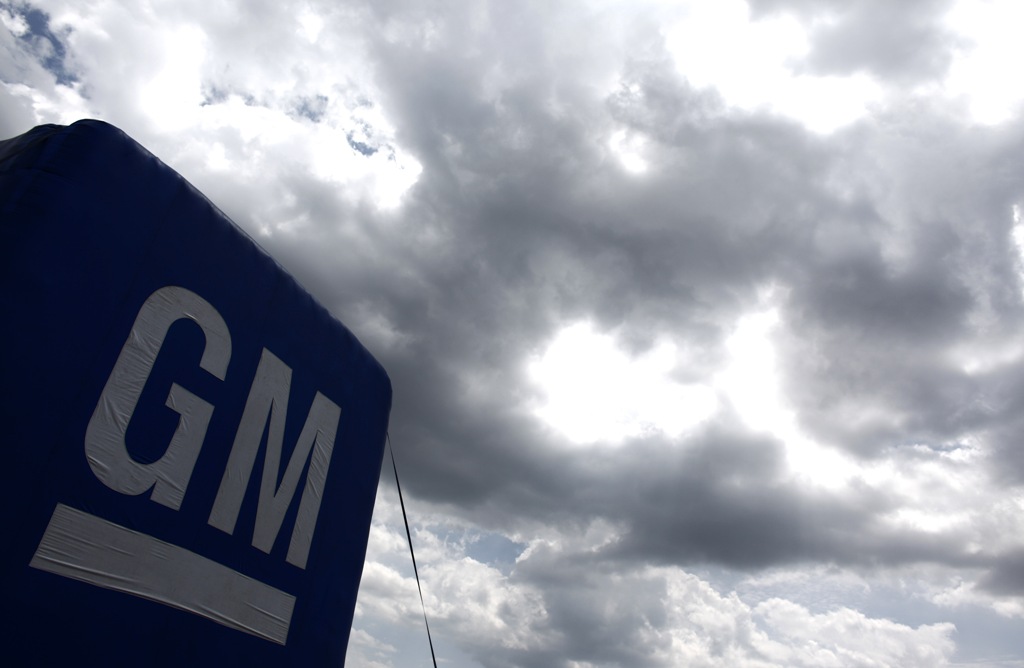
GM car recalls: Some defective ignition switches were made in China.Reuters
General Motors has said that ignition switches linked to a recent recall of some 3.4 million cars were manufactured in China, where British car maker Aston Martin reported a substandard part earlier in the year.
The ignition switches were made by China-based Dalian Alps Electronics, majority owned by Japan's Alps Electric. The problem switches found their way into the Chevrolet Impala and Monte Carlo, Buick LaCrosse and Lucerne, and Cadillac DeVille and DTS cars that were recalled earlier in the month.
Alps has admitted it had shipped ignition switches to GM but said it had not been contacted by the US firm regarding any defect.
Alps also said its ignition switches were based on designs by the Detroit automaker.
"As of [25 June], we have not been contacted, or received any complaint from GM of any problems or defects with Alps' switches," Takashi Sogo, group manager of investor and public relations, told Reuters.
The problem is similar to the ignition switch issue linked to at least 13 deaths in an earlier recall of 2.6 million Chevy Cobalts, Saturn Ions and other cars that resulted in a record US fine of $35m amid several US federal and state investigations.
Takata Air-Bag Recall
GM will be the latest firm to recall vehicles over potentially defective air bags supplied by troubled Japanese firm Takata.
GM is getting ready to recall about 33,000 Chevrolet Cruze sedans to fix air bag issues. The Cruze is its best-selling car in North America.
The issue, however, is not directly related to other problems with Takata air bags that have led to the recall of some 10.5 million vehicles globally, many of them made by Japanese firms Honda Motor, Nissan, Mazda and Toyota Motor.
Laura Andres's Email
GM has been grilled by Congress for disregarding the safety of its customers after emails from 2005 revealed that a GM employee had warned a "big recall" may be needed because of an ignition switch fault.
Emails made public on 18 June showed that GM employee Laura Andres in 2005 wrote to engineers and to the then vice-president of North American engineering Ed Koerner, warning that a 2006 Chevy Impala Special car she owned had suffered an engine stall when moving between a paved road and gravel.
Andres's email added that a technician had told her the problem could be with a part of the ignition switch. The 2006 Impala was recalled only on 16 June.
16 June Recall
Ignition switches in the 16 June recall can be knocked out of the "run" position, resulting in vehicle stalls and potentially affecting the power steering, power brakes and air-bag deployment.
But they do not need to be replaced, GM said, adding it will replace or re-design ignition keys to prevent a dangling key ring from slipping to one side and pulling the ignition key out of the "run" position.
GM has recalled over 20 million vehicles this year, mostly in the US. Close to 6.5 million of these were recalled because of ignition switch faults.
Chinese Suppliers
In February, luxury car maker Aston Martin recalled most of the sports cars it had built since 2007 after a Chinese supplier was found to be using substandard plastic.
The Warwickshire-based company recalled 17,590 cars after it found that Chinese firm Shenzhen Kexiang Mould Tool was using "counterfeit" plastic material supplied by Synthetic Plastic Raw Material of Dongguan.
Aston Martin said that low quality plastic, used to mould the accelerator pedal arms by the Chinese sub-supplier could result in breakage, increasing the risk of a crash.